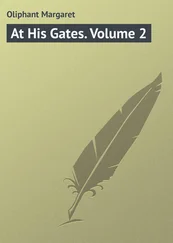Margaret Oliphant - Phoebe, Junior
Здесь есть возможность читать онлайн «Margaret Oliphant - Phoebe, Junior» — ознакомительный отрывок электронной книги совершенно бесплатно, а после прочтения отрывка купить полную версию. В некоторых случаях можно слушать аудио, скачать через торрент в формате fb2 и присутствует краткое содержание. Жанр: foreign_prose, на английском языке. Описание произведения, (предисловие) а так же отзывы посетителей доступны на портале библиотеки ЛибКат.
- Название:Phoebe, Junior
- Автор:
- Жанр:
- Год:неизвестен
- ISBN:нет данных
- Рейтинг книги:3 / 5. Голосов: 1
-
Избранное:Добавить в избранное
- Отзывы:
-
Ваша оценка:
- 60
- 1
- 2
- 3
- 4
- 5
Phoebe, Junior: краткое содержание, описание и аннотация
Предлагаем к чтению аннотацию, описание, краткое содержание или предисловие (зависит от того, что написал сам автор книги «Phoebe, Junior»). Если вы не нашли необходимую информацию о книге — напишите в комментариях, мы постараемся отыскать её.
Phoebe, Junior — читать онлайн ознакомительный отрывок
Ниже представлен текст книги, разбитый по страницам. Система сохранения места последней прочитанной страницы, позволяет с удобством читать онлайн бесплатно книгу «Phoebe, Junior», без необходимости каждый раз заново искать на чём Вы остановились. Поставьте закладку, и сможете в любой момент перейти на страницу, на которой закончили чтение.
Интервал:
Закладка:
This lady was the mother of Clarence Copperhead, the young man who was at Oxford, her only child, upon whom (of course) she doted with the fondest folly; and whom his father jeered at more than at any one else in the world, more even than at his mother, yet was prouder of than of all his other sons and all his possessions put together. Clarence, whom I will not describe, as he will, I trust, show himself more effectually by his actions, was like his mother in disposition, or so, at least, she made herself happy by thinking; but by some freak of nature he was like his father in person, and carried his mouse's heart in a huge frame, somewhat hulking and heavy-shouldered, with the same roll which distinguished Mr. Copperhead, and which betrayed something of the original navvy who was the root of the race. He had his father's large face too, and a tendency towards those demonstrative and offensive whiskers which are the special inheritance of the British Philistine. But instead of the large goggle eyes, always jeering and impudent, which lighted up the paternal countenance, Clarence had a pair of mild brown orbs, repeated from his mother's faded face, which introduced the oddest discord into his physiognomy generally. In the family, that is to say among the step-brothers and step-sisters who formed Mr. Copperhead's first family, the young fellow bore no other name than that of the curled darling, though, indeed, he was as far from being curled as any one could be. He was not clever; he had none of the energy of his race, and promised to be as useless in an office as he would have been in a cutting or a yard full of men. I am not sure that this fact did not increase secretly his father's exultation and pride in him. Mr. Copperhead was fond of costly and useless things; he liked them for their cost, with an additional zest in his sense of the huge vulgar use and profit of most things in his own life. This tendency, more than any appreciation of the beautiful, made him what is called a patron of art. It swelled his personal importance to think that he was able to hang up thousands of pounds, so to speak, on his walls, knowing all the time that he could make thousands more by the money had he invested it in more useful ways. The very fact that he could afford to refrain from investing it, that he could let it lie there useless, hanging by so many cords and ribbons, was sweet to him. And so also it was sweet to him to possess a perfectly useless specimen of humanity, which had cost him a great deal, and promised to cost him still more. He had plenty of useful sons as he had of useful money. The one who was of no use was the apex and glory of the whole.
But these three made up a strange enough family party, as may be supposed. The original Copperheads, the first family, who were all of the same class and nature, would have made a much noisier, less peaceable household; but they would have been a much jollier and really more harmonious one. Mr. Copperhead himself somewhat despised his elder sons, who were like himself, only less rich, less vigorous, and less self-assertive. He saw, oddly enough, the coarseness of their manners, and even of their ways of thinking; but yet he was a great deal more comfortable, more at his ease among them, than he was when seated opposite his trembling, deprecating, frightened little wife, or that huge youth who cost him so much and returned him so little. Now and then, at regular periodical intervals, the head of the family would go down to Blackheath to dine and spend the night with his son Joe, the second and the favourite, where there were romping children and a portly, rosy young matron, and loud talk about City dinners, contracts, and estimates. This refreshed him, and he came home with many chuckles over the imperfections of the family.
“My sons buy their wives by the hundred-weight,” he would say jocularly at breakfast the day after; “thirteen stone if she is a pound, is Mrs. Joe. Expensive to keep up in velvet and satin, not to speak of mutton and beef. Your mother comes cheap,” he would add aside to Clarence, with a rolling laugh. Thus he did not in the least exempt his descendants from the universal ridicule which he poured on all the world; but when he sat down opposite his timid little delicate wife, and by his University man, who had very little on the whole to say for himself, Mr. Copperhead felt the increase in gentility as well as the failure in jollity. “You are a couple of ghosts after Joe and his belongings, you two. Speak louder, I say, young fellow. You don't expect me to hear that penny-whistle of yours,” he would say, chuckling at them, with a mixture of pride and disdain. They amused him by their dulness and silence, and personal awe of him. He was quite out of his element between these two, and yet the very fact pleasantly excited his pride.
“I speak as gentlemen generally speak,” said Clarence, who was sometimes sullen when attacked, and who knew by experience that his father was rarely offended by such an argument.
“And I am sure, dear, your papa would never wish you to do otherwise,” said anxious Mrs. Copperhead, casting a furtive frightened glance at her husband. He rolled out a mighty laugh from the head of the table where he was sitting. He contemplated them with a leer that would have been insulting, had he not been the husband of one and the father of the other. The laugh and the look called forth some colour on Mrs. Copperhead's cheek, well as she was used to them; but her son was less susceptible, and ate his breakfast steadily, and did not care.
“A pretty pair you are,” said Mr. Copperhead. “I like your gentility. How much foie gras would you eat for breakfast, I wonder, my lad, if you had to work for it? Luckily for you, I wasn't brought up to talk, as you say, like a gentleman. I'd like to see you managing a field of navvies with that nice little voice of yours – ay, or a mob before the hustings, my boy. You're good for nothing, you are; a nice delicate piece of china for a cupboard, like your mother before you. However, thank Heaven, we've got the cupboard,” he said with a laugh, looking round him; “a nice big 'un, too, well painted and gilded; and the time has come, through not talking like a gentleman, that I can afford you. You should hear Joe. When that fellow talks, his house shakes. Confounded bad style of house, walls like gingerbread. How the boards don't break like pie-crust under Mrs. Joe's fairy foot, I can't make out. By Jove, ma'am, one would think I starved you, to see you beside your daughter-in-law. Always had a fine healthy appetite had Mrs. Joe.”
There was nothing to answer to this speech, and therefore a dead silence ensued. When the master of the house is so distinctly the master, silence is apt to ensue after his remarks. Mrs. Copperhead sipped her tea, and Clarence worked steadily through his breakfast, and the head of the family crumpled the Times, which he read at intervals. All sorts of jokes had gone on at Joe's table the morning before, and there had been peals of laughter, and Mrs. Joe had even administered a slap upon her husband's ruddy cheek for some pleasantry or other. Mr. Copperhead, as he looked at his son and his wife, chuckled behind the Times. When they thought he was occupied they made a few gentle remarks to each other. They had soft voices, with that indescribable resemblance in tone which so often exists between mother and son. Dresden china; yes, that was the word; and to see his own resemblance made in that delicate pâte , and elevated into that region of superlative costliness, tickled Mr. Copperhead, and in the most delightful way.
“How about your ball?” was his next question, “or Clarence's ball, as you don't seem to take much interest in it, ma'am? You are afraid of being brought in contact with the iron pots, eh? You might crack or go to pieces, who knows, and what would become of me, a wretched widower.” Mr. Copperhead himself laughed loudly at this joke, which did not excite any mirth from the others, and then he repeated his question, “How about the ball?”
Читать дальшеИнтервал:
Закладка:
Похожие книги на «Phoebe, Junior»
Представляем Вашему вниманию похожие книги на «Phoebe, Junior» списком для выбора. Мы отобрали схожую по названию и смыслу литературу в надежде предоставить читателям больше вариантов отыскать новые, интересные, ещё непрочитанные произведения.
Обсуждение, отзывы о книге «Phoebe, Junior» и просто собственные мнения читателей. Оставьте ваши комментарии, напишите, что Вы думаете о произведении, его смысле или главных героях. Укажите что конкретно понравилось, а что нет, и почему Вы так считаете.












